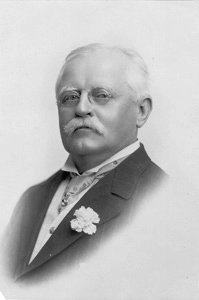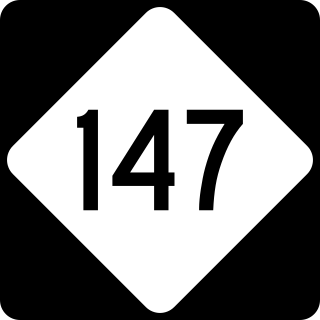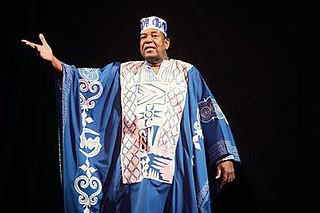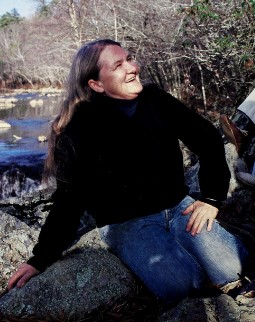
Raleigh is the capital city of the U.S. state of North Carolina and the seat of Wake County. It is the second-most populous city in North Carolina, after Charlotte. Raleigh is the tenth-most populous city in the Southeast, the 41st-most populous city in the U.S., and the largest city of the Research Triangle metro area. Raleigh is known as the "City of Oaks" for its many oak trees, which line the streets in the heart of the city. The city covers a land area of 147.6 sq mi (382 km2). The U.S. Census Bureau counted the city's population as 467,665 in the 2020 census. It is one of the fastest-growing cities in the United States. The city of Raleigh is named after Sir Walter Raleigh, who established the now-lost Roanoke Colony in present-day Dare County.

Durham is a city in the U.S. state of North Carolina and the county seat of Durham County. Small portions of the city limits extend into Orange County and Wake County. With a population of 283,506 in the 2020 census, Durham is the 4th-most populous city in North Carolina, and the 71st-most populous city in the United States. The city is located in the east-central part of the Piedmont region along the Eno River. Durham is the core of the four-county Durham-Chapel Hill, NC Metropolitan Statistical Area, which had a population of 649,903 at the 2020 census. The Office of Management and Budget also includes Durham as a part of the Raleigh-Durham-Cary, NC Combined Statistical Area, commonly known as the Research Triangle, which had a population of 2,043,867 at the 2020 census.

Raleigh–Durham International Airport, locally known by its IATA code RDU, is an international airport that serves Raleigh, Durham, and the surrounding Research Triangle region of North Carolina as its main airport. It is located in unincorporated Wake County, but is surrounded by the city of Raleigh to the north and east, and the towns of Cary and Morrisville to the south. The airport covers 5,000 acres and has three runways.
The Research Triangle, or simply The Triangle, are both common nicknames for a metropolitan area in the Piedmont region of the U.S. state of North Carolina. Anchored by the cities of Raleigh and Durham and the town of Chapel Hill, the region is home to three major research universities: North Carolina State University, Duke University, and the University of North Carolina at Chapel Hill, respectively. The "Triangle" name originated in the 1950s with the creation of Research Triangle Park located between the three anchor cities, which is the largest research park in the United States and home to numerous high tech companies.

Durham Bulls Athletic Park is a 10,000-seat ballpark in Durham, North Carolina, that is home to the Durham Bulls, the Triple-A affiliate of the Tampa Bay Rays of Major League Baseball. It is also home to the Duke Blue Devils and North Carolina Central Eagles college baseball teams. The $18.5-million park opened in 1995 as the successor to Durham Athletic Park.
WDNC is a sports radio station licensed to Durham, North Carolina but based in Raleigh, North Carolina. Owned and operated by Capitol Broadcasting Company as part of a cluster with NBC affiliate WRAL-TV, Fox affiliate WRAZ, and sister radio stations WCLY, WCMC-FM and WRAL, the station's studios are in Raleigh, and the transmitter site is in Durham. WDNC is branded as The Buzz and is affiliated with the CBS Sports Radio and ESPN Radio networks. In addition, WDNC is the flagship station for the Duke Blue Devils and is the local affiliate of the Charlotte Hornets.

WRJD is a radio station based in Durham, North Carolina, which currently broadcasts a Spanish Christian format. It was a heritage radio station that went by WSRC for over half a century.

Julian Shakespeare Carr was an American industrialist, philanthropist, and white supremacist. He is the namesake of the town of Carrboro, North Carolina.

North Carolina Highway 147 (NC 147) is a primary state highway in the U.S. state of North Carolina. The highway is an 8.1-mile-long (13.0 km) freeway through Durham running roughly southeast to northwest; the entire route lies within the city limits. To the southeast, it connects the city to the Research Triangle Park. NC 147 is the northern half of the Durham Freeway, which continues south onto Interstate 885 (I-885). The route is the main arterial through Durham, running alongside its downtown. It begins at a semi-directional T interchange with I-885 southeast of downtown Durham and runs northwest-southeast before merging into I-85 northwest of downtown Durham.
The Duke University Health System combines the Duke University School of Medicine, the Duke University School of Nursing, the Duke Clinic, and the member hospitals into a system of research, clinical care, and education.
Duke University Hospital is a 957-bed acute care facility and an academic tertiary care facility located in Durham, North Carolina. Established in 1930, it is the flagship teaching hospital for the Duke University Health System, a network of physicians and hospitals serving Durham County and Wake County, North Carolina, and surrounding areas, as well as one of three Level I referral centers for the Research Triangle of North Carolina. It is affiliated with the Duke University School of Medicine.
Hocutt v. Wilson, N.C. Super. Ct. (1933) (unreported), was the first attempt to desegregate higher education in the United States. It was initiated by two African American lawyers from Durham, North Carolina, Conrad O. Pearson and Cecil McCoy, with the support of the National Association for the Advancement of Colored People (NAACP). The case was ultimately dismissed for lack of standing, but it served as a test case for challenging the "separate but equal" doctrine in education and was a precursor to Brown v. Board of Education, 347 U.S. 483 (1954).
NC Mutual was an American life insurance company located in downtown Durham, North Carolina and one of the most influential African-American businesses in United States history. Founded in 1898 by local black social leaders, its business increased from less than a thousand dollars in income in 1899 to a quarter of a million dollars in 1910. The company specialized in "industrial insurance," which was basically burial insurance. The company hired salesmen whose main job was to collect small payments to cover the insured person for the next week. If the person died while insured, the company immediately paid benefits of about 100 dollars. This covered the cost of a suitable funeral, which was a high prestige item in the black community. It began operations in the new tobacco manufacturing city of Durham, North Carolina, and moved north into Virginia and Maryland, then to major northern black urban centers, and then to the rest of the urban South.
The following is a timeline of the history of the city of Durham, North Carolina, USA.

Charles Rudolph Davis, also known as Baba Chuck Davis, was an American dancer and choreographer whose work focused on traditional African dance. He was the founder of DanceAfrica, the Chuck Davis Dance Company, and the African American Dance Ensemble.

Stephen M. Schewel is an American politician, businessman, and academic. A Democrat, he is the former Mayor of Durham, North Carolina and formerly served on the Durham City Council and as the Vice Chair of the Durham Public School Board. Schewel is also a faculty member at Duke University's Sanford School of Public Policy and a former faculty member at North Carolina Central University. He founded the weekly newspaper Indy Week in 1983, and served as its president until he sold the paper in 2012. In 2010 he co-founded the Hopscotch Music Festival.
The Mechanics and Farmers Bank is an American bank owned by M&F Bancorp, Inc based in Durham, North Carolina. It served as one of the most influential African-American businesses in North Carolina in the 20th century.

Calvin Esau Lightner was an American architect, building contractor, and mortician. He was born in South Carolina and moved to Raleigh, North Carolina, to study architectural design at Shaw University. After graduation he took industrial courses at Hampton Institute and studied embalming in Tennessee. He and his brother established the C. E. Lightner and Brothers construction company and built numerous homes for members of Raleigh's black middle class.

Margaret Nygard was a British-American environmentalist and conservationist. Born in British India to a civil servant, she was educated in both India and Britain. During the 1940 and 1941 bombing campaign against Britain, her school was relocated to British Columbia, Canada. Nygard studied English at the University of British Columbia and after her graduation in 1944 briefly became a teacher at the university. She went on to earn a master's degree and a PhD from the University of California, Berkeley. In 1962, she and her family moved to Durham, North Carolina, and became aware of environmental threats to the Eno River. She founded the Eno River Association in 1965, becoming its first president. She naturalised as a United States citizen in 1993.












